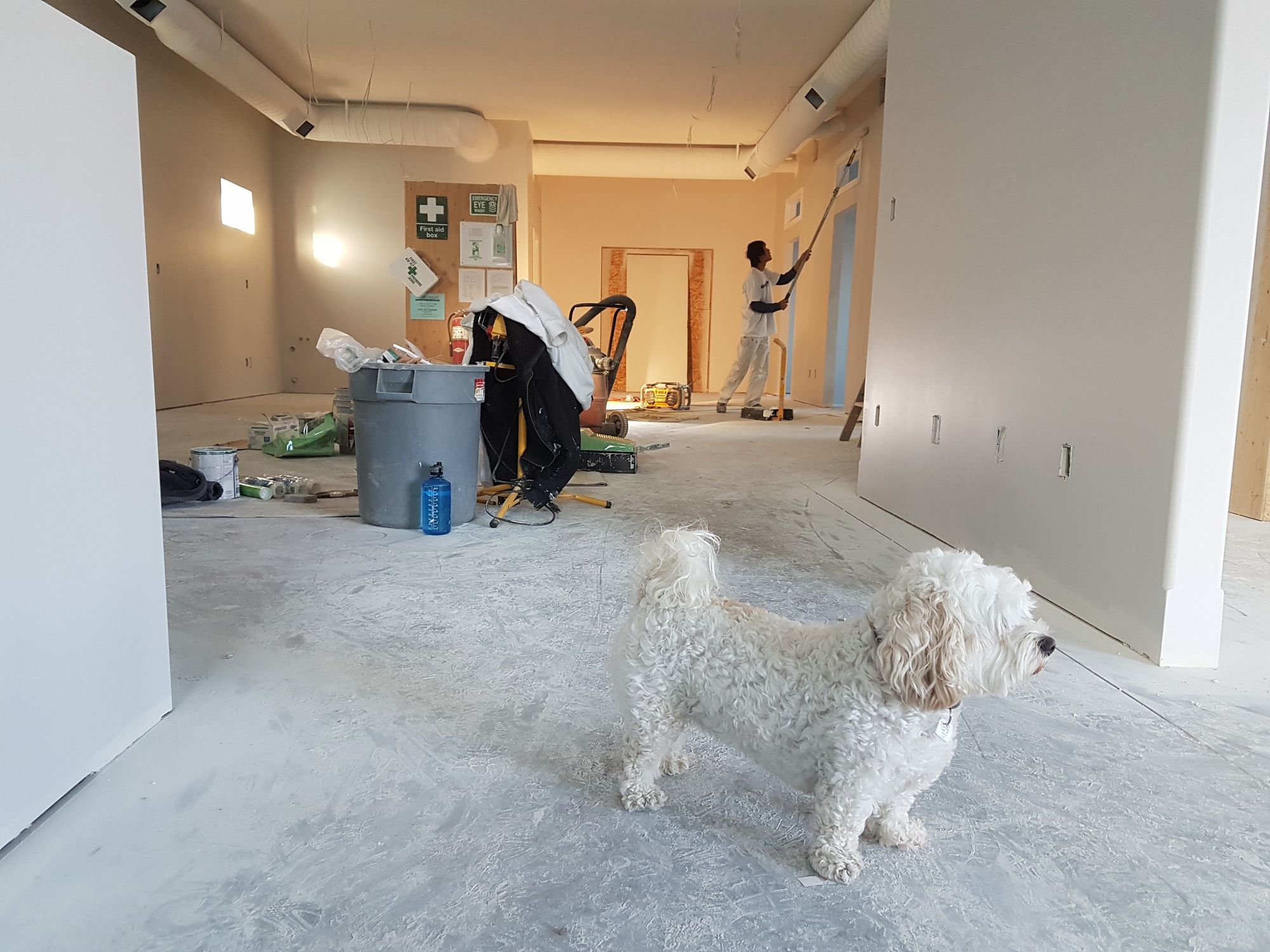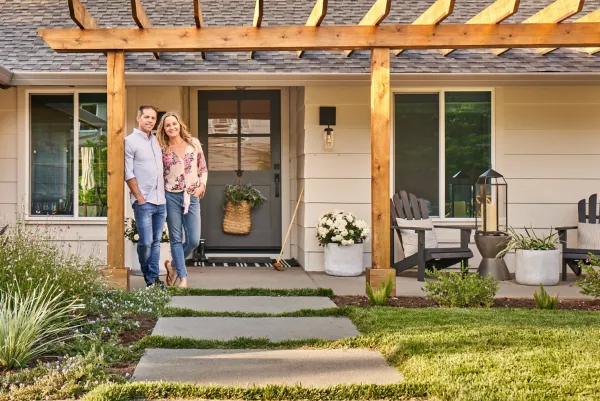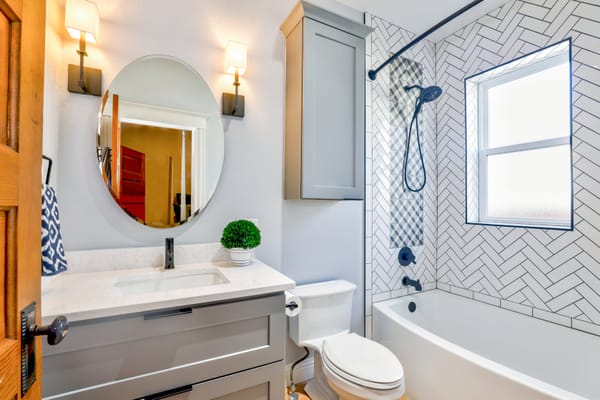Have you ever been plagued by the thought of revamping your aging property but held back due to the cost associated? Worry not. The government home improvement grants could be your saving grace. These grants are designed to financially assist homeowners in renovating their properties. However, the burning question that remains is, "Who is eligible for government home improvement grants?" Let's delve into the topic and clarify the eligibility criteria in detail.
What is a Home Improvement Grant?
A home improvement grant is a form of financial assistance provided by the government to homeowners for renovating their properties. Unlike loans, these grants do not need to be repaid, making them particularly beneficial for property owners. They can be used for various improvements, including essential repairs and energy-efficiency upgrades. The grants are often targeted towards low-income homeowners, senior citizens, disabled individuals, and those living in rural areas or homes affected by natural disasters.
Who Qualifies for Home Improvement Grants?
While the allure of government home improvement grants is undeniable, they aren't available to everyone. There are specific criteria that individuals must meet to qualify for these funds. Here are the key eligibility requirements:
Low-Income Homeowners
The primary target for these grants are low-income homeowners who can't afford the cost of essential home improvements. Most programs have strict income limits, so make sure to check the specifics of each grant you're considering.
How the Money Can Be Used
The grant money for low-income homeowners can be allocated for necessary home repairs, addressing safety issues, and other essential home improvements. This is crucial for maintaining a safe and habitable living environment.
How to Qualify:
- Provide proof of income that falls below a specific threshold.
- Must have valid documentation that confirms homeownership.
Senior Citizens and Disabled Individuals
Often, government home improvement grants prioritize senior citizens and disabled individuals. These grants focus on home modifications that increase accessibility and safety, such as adding ramps or handrails.
Section 504 Home Repair Program
This program specifically aids elderly and disabled individuals in making their homes safer and more accessible. It provides grants for repairs that remove health and safety hazards and may also offer loans for general home improvements. The program primarily targets those who struggle to afford necessary repairs due to low income.
Area Agency on Aging
This agency offers various services and support to senior citizens, including assistance with home improvements. They focus on enabling elderly individuals to live independently in their homes for as long as possible, often providing resources or information on obtaining home repair grants.
How the Money Can Be Used
For senior citizens and disabled individuals, the funds are intended for home modifications that enhance accessibility and safety, like installing ramps or safety rails.
How to Qualify:
- Verification of age for senior citizens or proof of disability for disabled individuals.
- Income must meet certain guidelines specified for the program.
Homeowners Eligible for Energy Efficiency Upgrades
Some grants are aimed specifically at homeowners looking to make their homes more energy-efficient. These may require an energy audit to confirm that the proposed changes would significantly reduce the home's energy consumption.
How the Money Can Be Used
This category focuses on upgrades that improve a home's energy efficiency, such as insulation or energy-efficient appliances.
How to Qualify:
- A professional assessment of the home to identify potential areas for energy efficiency improvements.
Rural Residents
Many programs prioritize residents of rural areas, assisting those who may not have access to traditional financing options. The USDA’s Single Family Housing Repair Loans and Grants is an example of such a program.
How the Money Can Be Used
Rural residents can use the grant for a variety of home improvements, focusing on essential repairs and upgrades necessary for rural living conditions.
How to Qualify:
- Proof of residency in an area classified as rural by the relevant governmental body.
Homeowners Affected by Natural Disasters
If your home has been damaged by a natural disaster, you may be eligible for a government home improvement grant. These grants are designed to help homeowners repair and rebuild after events like hurricanes, floods, or wildfires.
How the Money Can Be Used
These funds are allocated for repairing damages caused by natural disasters, aiding in restoring homes to safe living conditions.
How to Qualify:
- Documentation or evidence showing the home was impacted by a natural disaster.
Veterans
Home improvement grants for veterans are designed to address the unique challenges and needs faced by those who have served in the military. These grants are particularly vital for disabled veterans, as they cater to the creation of accessible and safe living environments. They help in making essential modifications like installing ramps, widening doorways, and adapting bathrooms for better accessibility. These grants recognize the sacrifices veterans have made and provide them with the necessary support to improve their living conditions and overall quality of life.
Specially Adapted Housing (SAH)
SAH grants assist veterans with severe service-connected disabilities in building, remodeling, or purchasing an adapted home. These grants focus on creating a living space that accommodates the veteran's disability.
Special Home Adaptation (SHA) Grants
SHA grants are available for veterans with specific service-connected disabilities. These grants can be used to adapt an existing home to meet their needs, focusing on mobility and functionality within the home.
Temporary Residence Adaptation Grants
These grants are for veterans with service-connected disabilities. They allow for modifications to a temporary residence, often the home of a family member, to make it more accessible.
How the Money Can Be Used
The funds can be allocated for modifications to improve accessibility and safety, especially for disabled veterans, and for general home repairs.
How to Qualify:
- Proof of military service.
- Disability status for certain grants.
Native Americans
Home improvement grants for Native Americans are tailored to meet the specific needs of Native American communities. These grants aim to improve living conditions, preserve cultural heritage, and ensure safe and healthy living environments. They often focus on essential home repairs and upgrades, particularly in tribal areas or designated Native American lands. The intention is to support the preservation and improvement of housing within these communities, respecting and acknowledging their unique cultural and historical context.
Housing Improvement Program (HIP)
The HIP is designed to help Native Americans with housing needs. This program assists in repairing, renovating, or replacing existing housing and in some cases, can help in the construction of new housing. It's particularly aimed at those living in substandard housing conditions and is a vital resource for improving the quality of living and housing stability in Native American communities.
How the Money Can Be Used
Grants can be used for essential home repairs, improvements, and upgrades to enhance living conditions.
How to Qualify:
- Membership in a recognized Native American tribe.
- Residing on tribal land or meeting specific criteria.
How to Apply for a Grant?
Once you've determined that you meet the eligibility requirements for a government home improvement grant, the next step is to apply. The application process varies depending on the grant. However, it typically involves submitting an application form along with necessary documents proving your eligibility. It's essential to carefully read the application guidelines and provide all requested information to increase your chances of approval.
Additional Eligibility Considerations
As you further explore the realm of government home improvement grants, there are additional eligibility factors you may need to consider.
Property Location
Some grants are only available to homeowners in certain states or counties. Therefore, your location can significantly affect your eligibility.
Property Type
The type of property you own might also influence your eligibility. Single-family homes, multi-family homes, manufactured homes, and condos have different grant programs with distinct eligibility requirements.
Military Status
Special grants are available for veterans and active-duty military personnel. These grants help adapt homes to accommodate service-related disabilities.
Tribal Membership
Tribal members may be eligible for specific grants aimed at improving housing conditions in tribal areas.
Historical Homes
If your home is on a historic registry, you may qualify for a grant to help preserve its historic integrity while making necessary improvements.
Getting the Most from Government Home Improvement Grants
Meeting the eligibility requirements is one thing, but to maximize your chances of receiving a grant, you should:
Provide Complete Information
Incomplete applications are one of the most common reasons for grant rejections. Make sure you thoroughly fill out all application sections and provide all required documentation.
Apply Early
These grants are often awarded on a first-come, first-served basis. Therefore, applying early increases your chances of securing a grant.
Use Grant-Specific Language
Align your application with the grant's mission and use relevant language that shows your understanding of the program.
Explore Multiple Options
Don’t limit yourself to applying for just one grant. There are numerous programs available, and applying for multiple grants could increase your chances of getting funding.
Expanding Housing Opportunities
The National Residential Improvement Association, along with various initiatives like the Home Investment Partnership Program and support from state and local governments, plays a pivotal role in expanding housing opportunities. These efforts focus on providing home improvement loans and grants, especially targeting health or safety hazards. They strive to create affordable housing options and assist very low-income homeowners to obtain affordable credit. Cash-out refinance is another tool used to fund home improvement projects, ensuring that homes are safe and accessible for all.
Conclusion
Government-sponsored financial aid, such as home repair grants, can provide the lifeline eligible homeowners need to address health and safety hazards in their homes. Home improvement grant programs funded by the federal government offer an avenue to turn around affordable housing plagued by health and safety issues, breathing new life into properties and enhancing the quality of life for residents. Whether you're dealing with much-needed home repairs, seeking accessibility improvements, or focused on improving energy efficiency, there is a grant program tailored to meet your specific needs.
The diversity of these programs, whether managed by federal agencies like the Department of Housing and Urban Development, or designed for residents of an approved tribal service area, reflects the broad commitment of the government to assist homeowners in their home improvement projects. These grant monies can be a game-changer for homeowners, especially those in dire need of home repair, yet burdened by financial constraints.
Remember, no home should be a source of anxiety. With these home improvement grant programs, the dream of converting your property into a secure, comfortable, and energy-efficient haven can be achieved. The road to transforming your home might seem daunting, but remember, a safer and revitalized living environment is not beyond your reach.






